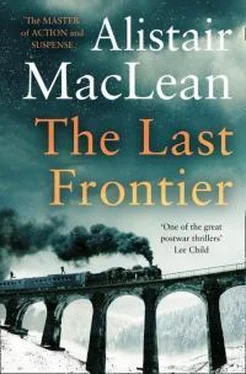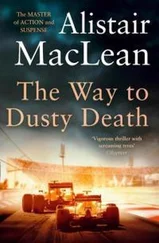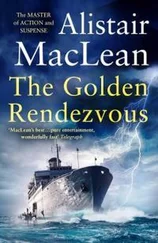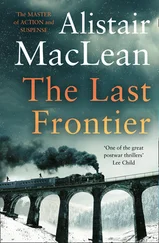‘Nor does their fear stop there. They are afraid of people who try to interpret everything in the limited light of their own particular culture, who believe that all people, the world over, are basically the same. A common assumption, and a stupid and dangerous one. The cleavage between western and Slavonic minds and ways of thinking, the differences between their culture patterns are immense, and alas, unrealized.
‘Finally, but perhaps above all, they are afraid of the penetration of western ideas into their own country. And that is why the satellite countries are so invaluable to them as a cordon sanitaire , an insulation against dangerous capitalist influences. And that’s why revolt in one of their satellites, as in this country two years last October, brings out all that is worst in the Russian leaders. They reacted with such incredible violence because they saw in this Budapest rising the culmination, the fulfilment at one and the same time of their three nightmare fears – that their entire satellite empire might go up in smoke and the cordon sanitaire vanish for ever, that even a degree of success could have touched off a similar revolt in Russia and, most terrible of all, that a large-scale conflagration from the Baltic to the Black Sea would have given the Americans all the excuse or reason they ever needed to give the green light to the Strategic Air Command and the carriers of the Sixth Fleet. I know, you know, that idea’s fantastic, but we are not dealing with facts, only with what the Russian leaders believe to be facts.’
Jansci drained his glass and looked quizzically at Reynolds. ‘You begin to see now, I hope, why I was neither advocate of nor participant in the October rising. You begin to see, perhaps, why the revolt just had to be crushed, and the bigger and more serious the revolt the more terrible would have to be the repression, to preserve the cordon , to discourage other satellites or any of their own people who might be having similar ideas. You begin to see the hopelessness – the fore-doomed hopelessness – of it, the disastrously ill-judged futility of it all. The only effect it had was to strengthen Russia’s position among the other satellites, kill and maim countless thousands of Hungarians, destroy and damage over 20,000 houses, bring inflation, a serious shortage of food and an almost mortal blow to the country’s economy. It should never have happened. Only, as I say, the anger of despair is always blind: noble anger can be a magnificent thing, but annihilation has its – ah – drawbacks.’
Reynolds said nothing: for the moment he could think of nothing to say. A long silence fell on the room, long but not cold any more: the only sound was the scuffling of Reynolds’ shoes as he tied his laces – he had been dressing as Jansci talked. Finally Jansci rose, switched out the light, drew back the curtain of the solitary window, peered out, then switched on the light again. It meant nothing, Reynolds could see, it was purely an automatic gesture, the routine precaution of a man who had lived as long as he had by never neglecting the slightest precaution. Reynolds replaced his papers in his wallet and the gun in its shoulder holster.
A tap came on the door, and Julia came in. Her face was flushed from the warmth of a stove, and she carried a tray holding a bowl of soup, a steaming plate of diced meat and diced vegetables and a bottle of wine. She laid this on the desk.
‘Here you are, Mr Reynolds. Two of our national dishes – Gulyás soup and tokány . I’m afraid there may be too much paprika in the soup and garlic in the tokány for your taste, but that’s how we like it.’ She smiled apologetically. ‘Left-overs – all I could produce in a hurry at this time of night.’
‘Smells wonderful,’ Reynolds assured her. ‘I’m only sorry to be such a bother to you in the middle of the night.’
‘I’m used to it,’ she said dryly. ‘Usually there’s half a dozen to be fed, generally about four o’clock in the morning. Father’s guests keep irregular hours.’
‘They do indeed,’ Jansci smiled. ‘Now off to bed with you, my dear: it’s very late.’
‘I’d like to stay a little, Jansci.’
‘I don’t doubt it.’ Jansci’s faded grey eyes twinkled. ‘Compared to our average guest, Mr Reynolds is positively handsome. With a wash, brush-up and shave he might be almost presentable.’
‘You know that’s not fair, Father.’ She stood her ground well, Reynolds thought, but the colour had deepened in her cheeks. ‘You shouldn’t say that.’
‘It’s not fair, and I shouldn’t,’ Jansci said. He looked at Reynolds. ‘Julia’s dream world lies west of the Austrian frontier, and she’d listen for hours to anyone talking about it. But there are some things she must not know, things that it would be dangerous for her even to guess about. Off you go, my dear.’
‘Very well.’ She rose obediently, if reluctantly, kissed Jansci on the cheek, smiled at Reynolds and left. Reynolds looked over at Jansci as the older man reached for the second bottle of wine and broke open the seal.
‘Aren’t you worried to death about her all the time?’
‘God knows it,’ Jansci said simply. ‘This is no life for her, or for any girl, and if I get caught she goes too, almost for a certainty.’
‘Can’t you get her away?’
‘You want to try it! I could get her across the frontier tomorrow without the slightest difficulty or danger – you know that that is my speciality – but she won’t go. An obedient, respectful daughter as you have seen – but only up to a self-drawn line. After that, she is as stubborn as a mule. She knows the risks, but she stays. She says she’ll never leave till we find her mother and they go together. But even then–’
He broke off suddenly as the door opened and a stranger walked in. Reynolds, twisting round and out of his seat like a cat, had his automatic out and lined up on the man before he had taken a step into the room, the snick of the safety catch plain above the scraping of the chair legs on the linoleum. He stared at the man unwinkingly, taking in every detail of the face, the smooth, dark hair brushed straight back, the lean eagle face, with the thin pinched nostrils and high forehead of a type he knew well – the unmistakable Polish aristocrat. Then he started as Jansci reached out gently and pressed down the barrel of the automatic.
‘Szendrô was right about you,’ he murmured thoughtfully. ‘Dangerous, very dangerous – you move like a snake when it strikes. But this man is a friend, a good friend. Mr Reynolds, meet the Count.’
Reynolds put the gun away, crossed the room and extended his hand. ‘Delighted,’ he murmured. ‘Count who?’
‘Just the Count,’ the newcomer said, and Reynolds stared at him again. The voice was unmistakable. ‘Colonel Szendrô!’
‘No other,’ the Count admitted, and with these words his voice had changed as subtly, but as completely, as his appearance. ‘I say modestly, but with truth, I have few equals in the matter of disguise and mimicry. What you now see before you, Mr Reynolds, is me – more or less. Then a scar here, a scar there, and that is how the AVO see me. You will understand, perhaps, why I was not unduly worried about being recognized to-night?’
Reynolds nodded slowly. ‘I do indeed. And – and you live here – with Jansci? Isn’t that rather dangerous?’
‘I live in the second best hotel in all Budapest,’ the Count assured him. ‘As befits a man of my rank, naturally. But as a bachelor, I must, of course, have my – ah – diversions, shall we say. My occasional absences call for no comment … Sorry to have been so long, Jansci.’
‘Not at all,’ Jansci, assured him. ‘Mr Reynolds and I have had the most interesting discussion.’
Читать дальше
Конец ознакомительного отрывка
Купить книгу












